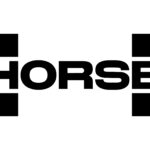Any non-residential property may be eligible for a commercial mortgage. Likewise, developers and businesses can apply for a commercial mortgage product for a residential project – so this is a varied and flexible form of borrowing!
However, getting your application approved and putting together a robust application can be a challenge, particularly for busy business owners who aren’t familiar with commercial mortgage lending.
If you’re looking to buy a first commercial property, invest in a rental unit or upgrade to new trading premises, the Revolution Brokers team has compiled this guide to help you understand what to expect from the application process.
Remember, every lender has a unique set of policies and criteria. Hence, the key to success is to work with a skilled commercial mortgage broker to apply to the most suitable provider the first time around!
To help identify the most competitive deals on the market or match your borrowing needs with an appropriate lender, give the team a call on 0330 304 3040 or message us at info@revolutionbrokers.co.uk.
How to Qualify for a UK Commercial Mortgage
A lot depends on why you’re buying a property and whether you have an established incorporated business or would like a commercial mortgage as a standalone investment landlord.
It’s also essential you apply carefully since some commercial lenders specialise in specific sectors or property types.
For example, financing a hotel isn’t likely to be simple through a high street bank, if not impossible. A niche lender with expertise in the hospitality sector will be a far better bet and much more likely to approve your application.
General, you’ll find the primary lender criteria look a little like this:
- Have a minimum deposit of at least 20-30%, and often from 40%.
- Provide sufficient security against the borrowed amount – for limited businesses; a lender will usually ask for the director’s personal guarantees in addition to the property offered as collateral.
- A minimum number of years trading or minimum experience in property investment if you’re buying a rental unit.
- Meeting affordability criteria, so that might mean a minimum annual income, stable profit margins or sufficient cash flow evidenced through business forecasts to demonstrate you’ll be able to keep up with the repayments.
Clean credit is another factor, and if you have an excellent credit score and no adverse credit history, you’ll surely secure better interest rates than an applicant without.
However, several excellent commercial lenders will consider bad credit applicants, provided you can demonstrate that you meet all other requirements.
What Properties Can I Finance Through a Commercial Mortgage?
Again, lender criteria vary, but they’ll always want to know about the property you’re buying, along with an independent valuation to ensure they aren’t accepting too high a risk level.
There isn’t a ring-fenced list of properties that are eligible for commercial mortgage lending, so that could include:
- Retail premises
- Shops
- Warehouses
- Office buildings
- Trading units
- Manufacturing or industrial sites
- Open land
- Development projects
- Multi-use properties – such as a shop with a flat above
Most lenders will require a more stringent valuation process for a commercial loan than for a residential home, so the cost of valuations needs to be factored into your budget.
How Does Affordability Work on a Commercial Mortgage?
The primary difference between affordability calculations for commercial mortgages is that the lender may cap the amount they’ll lend based on forecasts.
For example, if you’re buying a rental property, you’ll need to demonstrate the anticipated rental income achievable.
Lenders don’t follow a rigid framework for calculating business mortgage affordability. The FCA doesn’t regulate it in the same way as residential lending, so it’s very dependent on the provider’s requirements.
In essence, they need to know whether the mortgage is serviceable and that you can afford the repayments, so will look at:
- Company earnings before interest and tax
- Trading history, and whether you have made past losses
- Credit ratings, particularly looking for past defaults
- Net profit figures and projected income
As every lender uses a different in-house affordability metric, it’s vital to consult a whole-of-market broker if you have any concerns around affordability to ensure you present sufficient documentation to support the viability of your application.
What Costs Should I Expect to Pay on a Commercial Mortgage Application?
Fees are part and parcel of any borrowing application, and it’s essential you know the totals payable before proceeding with a commercial mortgage process.
Additional charges might include, and not necessarily be limited to:
- Arrangement fees, charged by your lender to set up the commercial mortgage facility. Most lenders charge between 1-2% of the total borrowed, although you might find the fee constitutes a higher percentage on a smaller mortgage.
- Legal fees – often around £500 as a bare minimum but potentially much higher if the purchase is complex.
- Valuation fees, as discussed earlier.
- Broker fees – usually around 1% of the loan value, but often a cost-effective way of using a skilled professional to negotiate other charges and interest rates!
One of the potential pitfalls of commercial mortgages is that there are thousands of competing products on the market, and they’re not easy to compare like for like.
It’s vital to assess the total costs of borrowing, including fees, charges and interest, as well as to analyse exit penalties that may impact your business if your circumstances change.
Which UK Lenders Are Best for Commercial Mortgages?
As with most of the factors we’ve discussed, the right lender for you will depend heavily on your business, the property you wish to buy, and how much you need to borrow.
- High street banks offer commercial mortgages and are more likely to approve businesses that already bank with them. However, criteria tend to be strict, and you may find it challenging to get your application approved.
- Challenger banks often have lower affordability thresholds and are sometimes more open to bad credit commercial mortgage applications. They are also more expensive and typically charge high exit fees.
- Niche lenders offer far greater flexibility and will assess every application on a case-by-case basis. They’re an excellent option for young businesses and negotiate directly with your broker to arrive at a deal.
For more information about any aspect of applying for a commercial mortgage and getting your finding approved, please get in touch with Revolution Brokers on 0330 304 3040, or drop us an email at info@revolutionbrokers.co.uk.


















